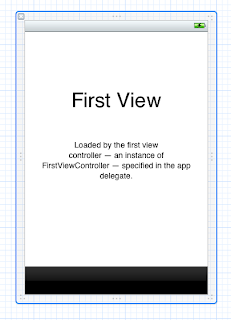This morning I was reading and singing Psalm 103.
Bless the Lord, O my soul, and all that is within me, bless his holy name! Bless the Lord, O my soul, and forget not all his benefits, who forgives all your iniquity, who heals all your diseases, who redeems your life from the pit, who crowns you with steadfast love and mercy, who satisfies you with good so that your youth is renewed like the eagle's. Psalm 103:1-5So much to be thankful for-- forgiveness, healing, rescue, love, mercy, goodness, renewal...
Somehow worship can degenerate into the highest goal being self-expression and catharsis. Catharsis can be good, but when we spend all our time on "our soul" we can miss the very avenue for restoration.
It is like going to the doctor's office and sitting in the waiting room rehearsing all your problems. Until you "see the doctor" there is no real help (and everybody wonders why you're talking to yourself!). God promises to restore our souls when we see Him (seeking, looking, praising).
The following is along the same lines from an earlier post (Sept 9, 2011) "About God and not about me"
Maybe self-expression dominates today because so many worship songs are marked more by “How I’m feeling” than by Adoration.?
Adoration is "the intense admiration culminating in reverence and worship, together with the outward acts and attitudes which accompany such reverence." (International Standard Bible Encyclopedia)
Richard Schmidt in his book “Glorious Companions” points to Isaac Watts’ ‘When I Survey the Wondrous Cross’ as the first English hymn written in the first person. He says “Many at the time considered it vain because it called attention to the author rather than focusing entirely upon God.”
Wow, seriously!?! Things have changed...
Schmidt goes on to describe Charles Wesley’s hymns (also in the 1700’s) as being “marked by their warm, personal tone.” That was awesome! A positive transformative shift was occurring, leading the worshiper out of dry formality.
Fast forward and it seems our worship is in need of a radical movement out of self-absorption into revelation of God’s greatness.
We could say the same thing as they did in their critique in the 1700’s, not because the word “I” is used a handful of times but because the rest of the words are mostly about us. The same song would more typically be “When I survey my desperate heart, I’m feeling dry and needing You…” Can we keep the warmth and change the focus?
Can we write more songs with authentic lyrics from the heart, but primarily God-focused? Can we write songs that describe God with vocabulary beyond “amazing,” “wonderful” and “awesome”? The Bible is full of God’s self-revelation, anything but boring or redundant...
There are encouraging signs... a movement is stirring among artists to rework hymns keeping the rich language but adjusting the music. Some are writing new songs along these lines of being more God-focused. Greg Russell (our worship pastor) and I share this burden and have been talking with worship leaders and songwriters who are pondering the same stuff. We're charting a course in this direction, looking to join others in training a new generation of worship leaders.
Surely God is up to something.



